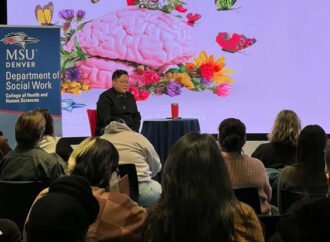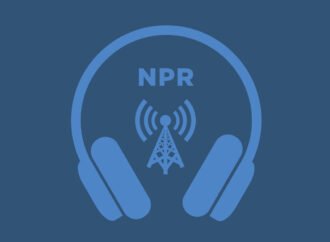TRANSCRIPT 17 NOVEMBER 2025 ADHD prescribing for GPs a positive change for adult patients AMA Queensland President Dr Nick Yim spoke to ABC Sunshine Coast about 4BC radio about the access this change will give Queenslanders with ADHD, particularly those in regional and rural areas. Transcript: AMA Queensland President, Dr Nick Yim, ABC Sunshine Coast, Drive
TRANSCRIPT
17 NOVEMBER 2025
ADHD prescribing for GPs a positive change for adult patients
AMA Queensland President Dr Nick Yim spoke to ABC Sunshine Coast about 4BC radio about the access this change will give Queenslanders with ADHD, particularly those in regional and rural areas.

Transcript: AMA Queensland President, Dr Nick Yim, ABC Sunshine Coast, Drive with Annie Gaffney, Monday 17 November 2025
Subject: ADHD prescribing
ANNIE GAFFNEY: The time to get an ADHD diagnosis can be up to two years, with the majority waiting five months. Now, to combat this, GPs in Queensland will soon be given the ability to diagnose ADHD in adults and prescribe medication. It’s something that they’ve been able to for people under 18 for many years, but the Australian-first changes come into effect on December 1st. Dr Nick Yim is a Harvey Bay-based GP and the President of the Australian Medical Association Queensland. Nick, good to have you with us this afternoon. How big a win is this for GPs to be able to diagnose adults now who believe they might have ADHD?
DR NICK YIM: Good afternoon, Annie. I think more importantly, this is a really positive step for patients in the community. We know across the state of Queensland and across Australia there has been challenges of access to see psychiatrists. As you alluded to GPs have already been diagnosing and prescribing for children, and GPs are in the best position to take this next step to prescribing adults and doing so in a safe matter.
ANNIE GAFFNEY: For a GP to prescribe and diagnose ADHD, they’ll need some specialist training. What will that entail?
DR NICK YIM: In Queensland from the 1st of December, there is no additional training requirements. However, we know that many GPs, they will undertake additional training via the college with modules. We also know currently many GPs have already undertaken that training. So I’m asking the community just to be patient in this space. Obviously, 1st of December is only around the corner,.so some patients may need to be unreferred still, but at the same time, it’s a really great step for Queenslanders.
ANNIE GAFFNEY: I’ve heard of some adults waiting up to 18 months to two years to see a psychiatrist. I mean, how big a difference is this going to make for people seeking a diagnosis or even needing refills on their prescriptions?
DR NICK YIM: I think this is going to make a huge difference, in particular for patients living in regional, rural and remote Queensland. We know that challenges of a decentralised state and such a big state like Queensland, access can be quite difficult. But we also must remember that ADHD management is not just about prescription medication. It also requires all the non-medical approaches such as psychology, social workers, and all supports in place in their town.
ANNIE GAFFNEY: Could these changes lead to an over-diagnosis of ADHD, do you believe?
DR NICK YIM: I think the key thing here is that the Queensland GPs, they will be following the established national guidelines for ADHD prescribing and management. These guidelines were formed in conjunction with psychiatrists and also paediatricians. So this is something where we already know that GPs work very well in a collaborative manner. And obviously in those complex cases or uncertain cases, they may be referred to a psychiatrist.
ANNIE GAFFNEY: There’s already a lot of pressure on GPs, Nick, with long wait times and lack of bulk billing. How will this change affect the industry, do you think?
DR NICK YIM: I think this is going to be a really positive change. We know that the majority of patients, they touch base with their GPs on a regular basis. GPs will know that person’s history well or their other medical conditions and also their social situation. They’re well positioned to diagnose, prescribe and and manage in the space.
ANNIE GAFFNEY: Last Friday on the program we were speaking about some new figures that were out around an increased number of poisonings in young children from ADHD medication. What’s the take on that by medicos like yourself? How can we avoid that with young children? It seemed to centre around the fact that much smaller doses were required and adults had to cut up those pills, if you like, to provide quarter doses of the prescribed medication coming in a tablet that was much larger than was required. What should happen in this this space of ADHD medication, particularly for young children?
DR NICK YIM: This is a really challenging space. Often when parents or caregivers need to split dosing, this is often a result of medication shortages around the country and the world. So it is a complex issue where we continue to advocate for adequate supplies of medications. This is something that we need to look into, but at the same time, this is where GPs, specialists and also the pharmacists work really closely together to ensure that we are delivering medication safely.
ANNIE GAFFNEY: Good to speak with you, Nick, as always. Thanks so much.
DR NICK YIM: Thank you, Annie.
 Internet Connectz
Internet Connectz 













Leave a Comment
Your email address will not be published. Required fields are marked with *